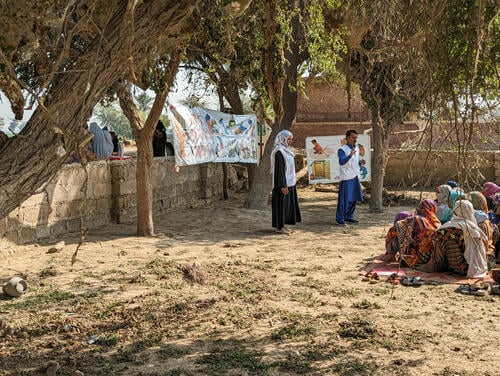Healthcare for women, children and newborns is a serious concern in Pakistan and remains our priority there. Women in rural areas die from preventable complications during pregnancy and delivery, and neonatal care is unavailable in many areas. According to the 2017-8 Pakistan Demographic and Health Survey, 1 in every 14 children dies before the age of five.
Why are we here?

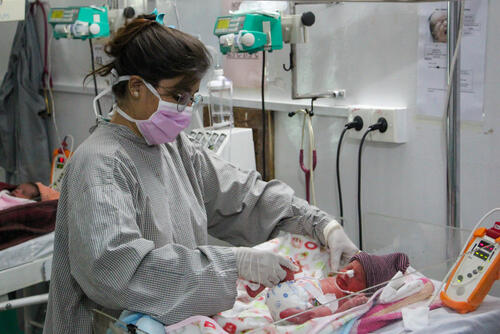
The availability of free, high-quality medical care is limited for women and children, particularly in rural areas. We work in four different locations in Balochistan and Khyber Pakhtunkhwa provinces to provide reproductive, neonatal and paediatric care. Local communities, Afghan refugees and people who cross the border from Afghanistan to seek medical assistance benefit from our comprehensive 24-hour emergency obstetric services, which include surgery and referrals for complicated cases. We also run inpatient and outpatient therapeutic feeding programmes for severely malnourished children in Balochistan.

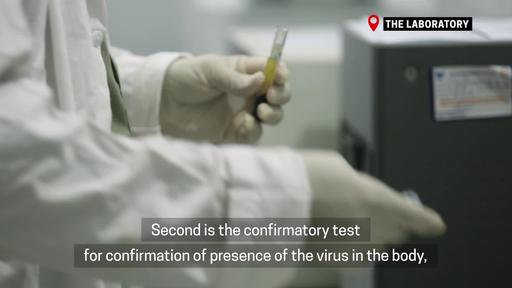
Cutaneous leishmaniasis, a disease transmitted by the bite of a sandfly, is endemic in parts of Pakistan. The disease is characterised by disfiguring and painful lesions. We run five treatment centres for this disease; three in Quetta, Balochistan, one in Bannu and one in Peshawar Khyber Pakhtunkhwa. Our teams offer diagnosis, treatment, health education and counselling. The cutaneous leishmaniasis programme has been expanded to the outskirts of Peshawar through MSF satellite clinics. From 2022 to 2023, we saw an exceptional increase in the number of cutaneous leishmaniasis patients at our facilities. In 2023, 11,425 patients were started on treatment for cutaneous leishmaniasis.
Globally, Pakistan is one of the countries with the highest number of hepatitis C cases. MSF has been running a clinic for Hepatitis C virus in Machar Colony, a densely populated informal settlement in Karachi. In 2023 alone MSF started 1, 942 people on antiviral treatment specifically designed for hepatitis C virus.
Pakistan ranks fifth among the high tuberculosis (TB) burden countries, and sixth when it comes to drug-resistant tuberculosis (DRTB). Since 2021, MSF has been working in close collaboration with Punjab health authorities to offer free diagnosis and treatment services to DRTB patients at the programmatic management of DRTB site (PMDT) in Gujranwala district.

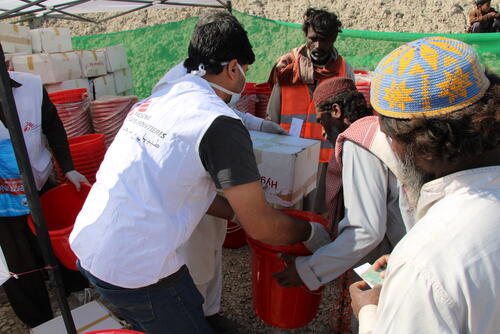
MSF supports the Pakistani authorities with emergency response preparedness in case of disease outbreaks or natural disasters. When Pakistan was hit by catastrophic flooding in mid-2022, MSF launched emergency activities to assist the millions of people affected by it. We reoriented our existing programmes and expanded our activities to respond to the emergency in the worst hit areas in Balochistan, Khyber Pakhtunkhuwa and Sindh provinces providing healthcare and addressing specifically severe acute malnutrition, alongside ongoing the malaria outbreak with treatment and prevention. Our emergency activities continued in 2023 as well.
Our activities in 2023 in Pakistan
Data and information from the International Activity Report 2023.
1,263
1,263
16.5 M€
16.5M
1986
1986
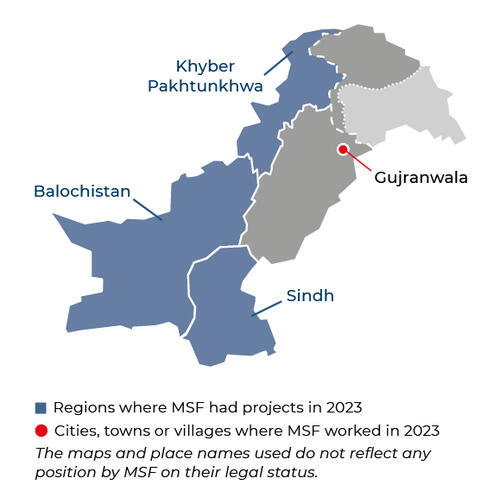

47,500
47,5
13,200
13,2
11,500
11,5

1,940
1,94
- Try a different country, year, format, or topic.
- Clear one or more filters



